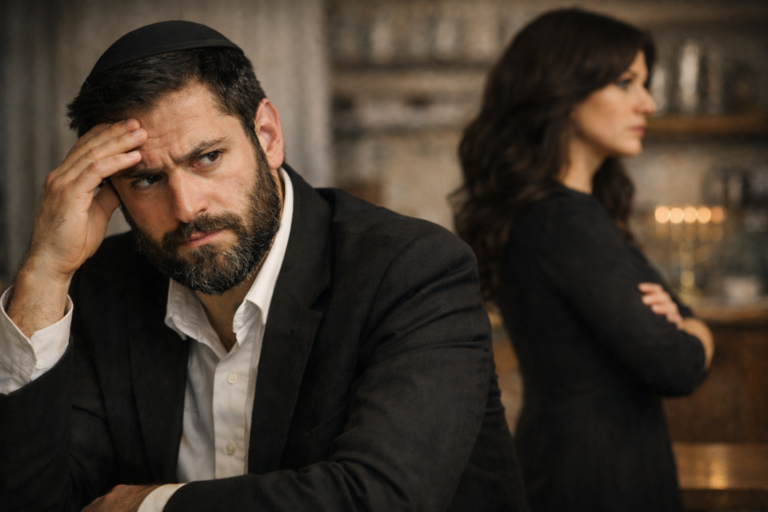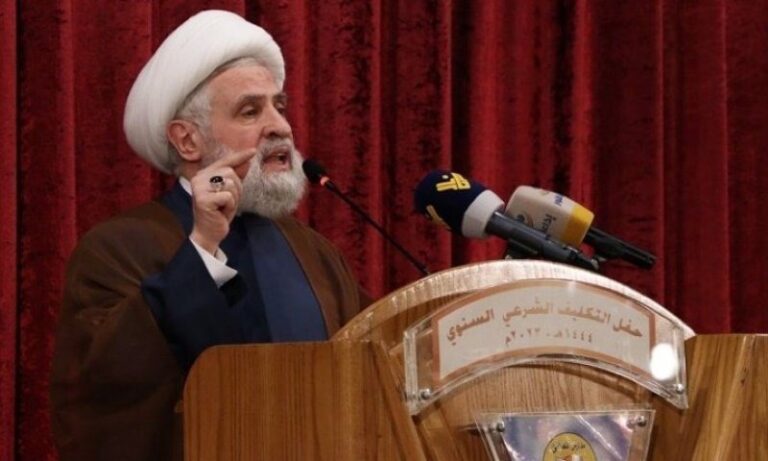(By Rabbi Yair Hoffman for 5tjt.com)
As was heard, Rav Reuvain Feinstein and his Rebbitzen were in a terrible car accident this week. The Rebbitzen (Tehillim name Chava Sorah Bas Ita Dvorah) suffered from internal bleeding and had a successful surgery. However, the doctors have informed the family that, “the next 36 hours (as of 9:30 AM Friday morning) are very crucial.”
The issue is that the organs need to be oxygenated adequately. The numbers, boruch hashem are going in the right direction, but she still needs much rachamei shamayim Please continue to be mispallel and learn in her z’chus. She is still in serious sakanah.
As far as Tehillim on Shabbos – each Rav should decide for their shul, but she is in serious sakanah.
What follows is a discussion of the underlying issues, in general, of whether or not we recite Tehillim on Shabbos in the zchus of a Choleh in sakanah.
When Rav Aron Leib Shteinman zt”l took seriously ill, Rav Chaim Kanievsky Shlita as well as numerous Gedolim in America, ruled that Tehillim should be said on Shabbos.
The issue is that on Shabbos, there exists a Mitzvah of Oneg Shabbos – taking delight and pleasure in the day. Delighting in the day means that we should avoid activities that bring about sadness. Most authorities, in fact, hold that the Mitzvah of Oneg Shabbos is a Biblical Mitzvah (See Rashi and Rashba on Yevamos 93a and Rivash, responsa #513). Generally speaking, crying or crying out is an expression of sadness – an activity that people want to avoid when they are happy.
One could assume then, that we should avoid crying on Shabbos. And while it is true that the Rambam (Shabbos 36:1) holds that Oneg Shabbos is only a Rabbinic Mitzvah, it would seem that even on a Rabbinic level we should avoid crying. Crying has the same halachos as crying out in Tefilah (See Responsa Torah Lishma #103).
NAMING A CHILD
Naming a child is a period of fantastic joy for both parents and grandparents, particularly when the naming perpetuates the memory of loved ones. Yet sometimes, people are brought to tears at the moment that the child is named for the deceased love one. When a Bris falls on Shabbos, should we avoid giving Krias Shaim to the father, if he will be brought to tears? Are these tears of complete joy or is there an element of sadness here?
All this brings us to a fascinating passage found in the Talmud Yerushalmi (Brachos) that, interestingly enough, is not cited in the Talmud Bavli.
The great sage Rabbi Akiva, had lost his son, Eliezer. Rabbi Akiva’s students encountered their master crying on the Shabbos. They asked him, “Rebbe, have you not taught us the verse, “And ye shall call Shabbos a delight?” Rabbi Akiva responded, “This [crying] is my personal delight.”
The Bavli makes no mention of this episode. The Beis Yoseph (OC 288), however, cites the Agur in the name of the Shvilei HaLeket who does mention this Yerushalmi.
The Agur clearly indicates that Oneg Shabbos is a concept that does not have objective criterion. It is subjective and dependent upon each individual.
TWO VIEWS ON RABBI AKIVA’S TEARS
The Ramah (OC 288:2) and the TaZ argue about how one understands the Agur. The Ramah rules that if crying makes a person feel better, by allowing the pain to go away from his heart – then it is permitted to cry on Shabbos. It seems from the wording of the Ramah that it is only permitted if the person would know that the crying would make him feel better.
TAZ FORBIDS
The TaZ, on the other hand, has a different explanation for the crying and an altogether different source than this Yerushalmi. The TaZ explains that the crying of Rebbe Akiva was not based upon the idea of removing pain from one’s heart. He writes that it is a special form of crying that emanates from Dveikus – cleaving to Hashem. He cites as the source for this idea the Zohar Chadash. According to the TaZ – it would not be permitted to cry on Shabbos in order to take away the pain. Indeed, the TaZ writes that if the Ramah is correct – everyone would be permitted to cry on Shabbos.
The TaZ gives us no further reference where it may be found in the Zohar. It is likely that it is the Midrash HaNeelam in Parshas VaYeirah page 98b. The Mishna Brurah cites the TaZ but further elaborates upon the opinions of the Eliyahu Rabbah’s and the Tosefes Shabbos, who disagrees. The Eliyahu Rabba quoted the responsa of Reb Binyomin Ze’ev (#210) who justifies the Ramah’s position. As far as the question that the TaZ poses that this leniency would permit everyone to cry – the Eliyahu Rabbah answers that not all people are the same. To some, crying makes a sad matter worse or at least remain equal. To others crying allows a person to get it out of their system. The Ramah’s permissive ruling was only for the latter.
THOSE WHO DISAGREE WITH THE RAMAH
While it seems that the position of the Mishna Brurah is to allow crying for those people who will feel better about it, the Rav Shulchan Aruch (the first Lubavitcher Rebbe) leaves out the entire matter. It would seem, therefore, that he is in agreement with the view of the TaZ – that crying is only permitted for those who do so out of a profound sense of Dveikus and Chassidus. The Mezritcher (Reb Dov Ber ben Avrohom student of the Besht) in his Likutei Yekarim (#4) also understands the issue like the TaZ.
CONCLUSIONS
So now let’s get to some conclusions. According to what we are suggesting here, to cry out in Tehillim would only be permitted to those whose agony might be quelled, even ever so, by praying for their refuah shleimah. If, however, the person is an individual whose pain will not be alleviated, even somewhat, through the Tefilah – then if he or she would be further stressed by the pain brought on by thinking about it on Shabbos – it would seem that he or she should not be crying out in Tefilah.
What about the father who, on Shabbos, is given the honor of Krias Shaim, naming a child after a parent, who will be brought to tears? Perhaps we can argue that it does assuage pain, the pain he or she is feeling upon the loss of a parent and the perpetuation of the name within the family addresses that Tzaar. Thus, it would be permitted according to the Ramah. According to the TaZ, it may not be so clear.
May Hashem bring yeshuos and nechamos to all of Klal Yisroel and may Rebbitzen Feinstein have a complete refuah shleimah!
The author can be reached at [email protected]












2 Responses
I find it interesting how you will post random pictures of women who need donations from the public.,yet u wouldnt post a picture of the wife of one of the biggest gedolim in America today.
you wrote:
One could assume then, that we should avoid crying on Shabbos. And while it is true that the Rambam (Shabbos 36:1) holds that Oneg Shabbos is only a Rabbinic Mitzvah, it would seem that even on a Rabbinic level we should avoid crying.
i would imagine you are refering to the R’M Shabes 30:1 , who writes:
ארבעה דברים נאמרו בשבת שנים מן התורה ושנים מדברי סופרים והן מפורשין על ידי הנביאים. שבתורה זכור ושמור. ושנתפרשו על ידי הנביאים כבוד ועונג שנאמר וקראת לשבת עונג ולקדוש ה’ מכובד:
In any case : The Chasam Sofer has a proof that even though the R’M writes it’s ‘me divrei sofrim’ it means De’Oraisa , not D’Rabonon;
The R”M in Shvues (1,6):
שלישית שנשבע לבטל את המצוה. כיצד כגון שנשבע שלא יתעטף בציצית. שלא ילבש תפילין. ושלא ישב בסוכה בחג הסוכות. ולא יאכל מצה בלילי הפסח. או שיתענה בשבתות ובימים טובים וכן כל כיוצא בזה:
pretty clear that fasting on shabes on the same footing as tfilin, etc…
How would that necessary relate to crying, not sure;